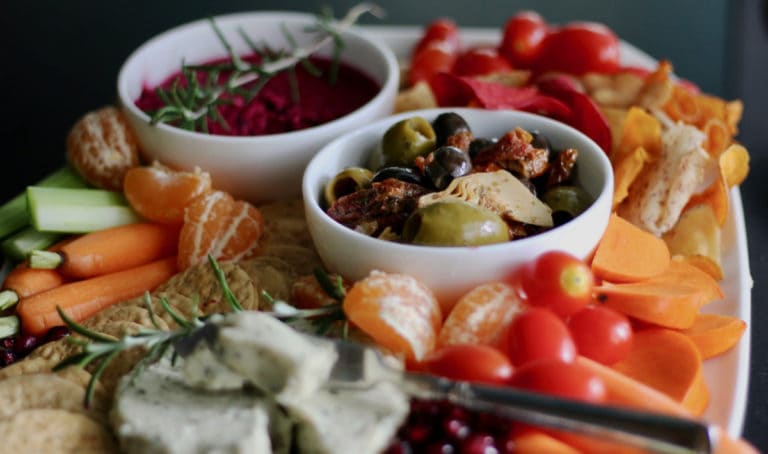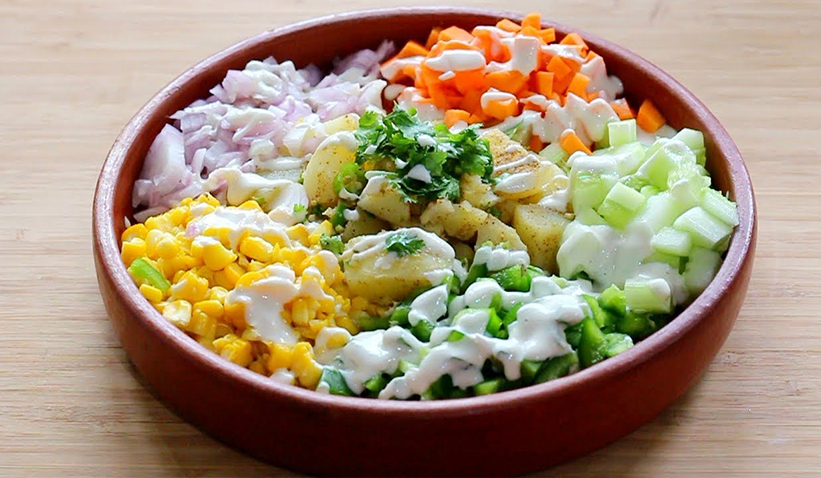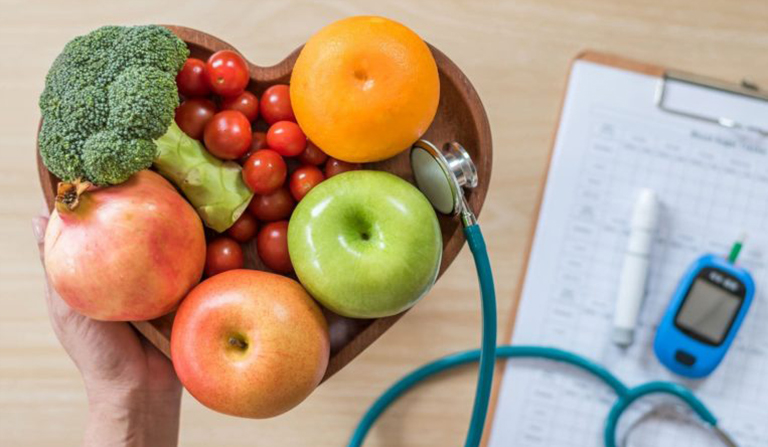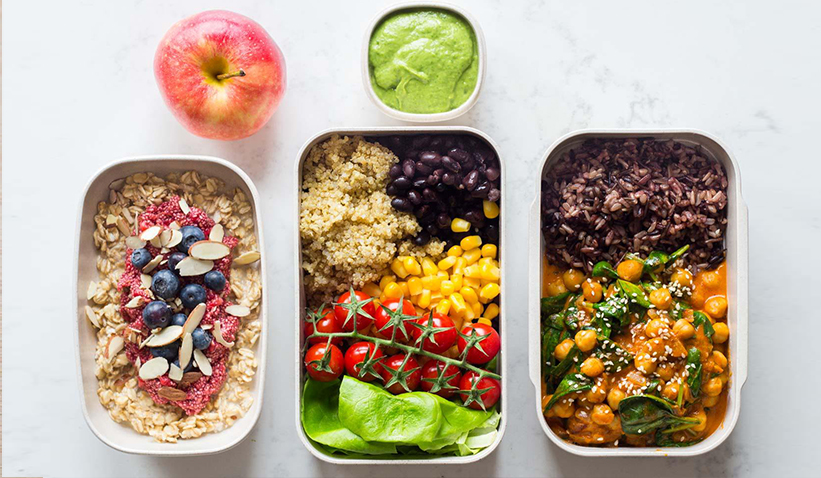RECOMMENDED Dietary ALLOWANCE FOR A PREGNANT INDIAN WOMAN
NORMAL ALLOWANCE | ADDITIONAL | |||
| NUTRIENTS | SEDENTARY | MODERATE | HEAVY | PREGNANCY |
ENERGY K Cal/d | 1875 | 2225 | 2925 | + 300 |
PROTEIN g/d | 50 | 50 | 50 | + 15 |
FAT g/d | 20 | 20 | 20 | + 10 |
CALCIUM mg/d | 400 | 400 | 400 | + 600 |
IRON mg/d | 30 | 30 | 30 | + 8 |
Vitamin A Retinol ug/d B – carotene ug/d | 600 2400 | 600 2400 | 600 2400 | – – |
THIAMIN mg/d | 0.9 | 1.1 | 1.2 | + 0.2 |
Riboflavin mg/d | 1.1 | 1.3 | 1.5 | + 0.2 |
NIACIN mg/d | 12 | 14 | 16 | + 2 |
VIT B6 mg/d | 2 | 2 | 2 | + 0.5 |
VIT C mg/d | 40 | 40 | 40 | – |
FOLIC ACID ug/d | 100 | 100 | 100 | + 300 |
VIT B 12 ug/d | 1 | 1 | 1 | – |
SUGGESTED NUTRIENT RICH FOODS FOR A PREGNANT WOMAN
- Rice
- Wheat
- Ragi
- Rice Flakes
- Millets
- Sprouted Whole Grains
- Broken Wheat
- Legumes
- Lentils
- Sprouts
- Soybean & Soy Products
- Puffed Grams
- Quinoa
- Beans
- Spinach
- Dried Fruits
- Fenugreek Leaves
- Drumstick Leaves
- All Green Leafy Vegetables
- Sweet Potato
- Carrot
- Beetroot
- Tomatoes
- Pumkin
- Coconut
- Bell Peppers
- Pomegranate
- Custard Apples
- Apple
- Orange
- Melons
- Sesame
- Banana
- Gooseberry
- Guava
- Papaya
- Chikoo
- Eggs
- Lean Meat
- Fish
- Milk
- Curd
- Paneer
- Buttermilk
- Walnuts
- Almonds
- Nut Butters
- Pumkin Seeds
DIETARY MODIFICATIONS DURING PREGNANCY
A pregnant mother should consume nutrient dense foods- that is food which gives most nutrients per calorie should be consumed. A pregnant mother’s diet should conform to the BASIC 5 food pattern.
- Eat small meals frequent meals at regular intervals
- Eat slowly
- Eat plenty of milk and milk products, green leafy vegetables, fresh fruits and vegetables, raw salads and whole grain preparations.
- Eat foods rich in fiber – whole grain cereals, pulses and vegetables, to avoid constipation.
- Take plenty of fluids including 8 to 12 glasses of water per day.
- Avoid superstitions and food taboos.
- Restrict salt intake to prevent pregnancy-induced hypertension and pre- eclampsia.
- Restrict excess intake of beverages containing caffeine like coffee and tea to prevent retarded fetal growth.
- Eat more sprouted grams and fermented foods.
- Drink lots of fluids such as water, soups and fresh fruit juices.
- Avoid smoking, tobacco chewing and consumption of alcohol.
COMPLICATIONS DURING PREGNANCY
NAUSEA AND VOMITTING
Most commonly referred to as “Morning sickness”. This condition is very common during early pregnancy, which commences in the 5th or 6th week and ends by the 13th or 14th week. A number of factors such as physiological, psychological and dietary problems could be a cause.
Do's
- Small frequent meals
- High Carbohydrate bland diet, fairly dry
Don'ts
- Consumption of liquids between meals
- Consumption of fatty foods
- Excessive seasoning and spices
- Strong flavored foods
- Strong coffee in large amounts
DIABETES MELLITUS
There are three major groups of patients with carbohydrate intolerance during pregnancy. They are:
- Insulin dependent diabetes mellitus
- Non – insulin dependent diabetes mellitus
- Gestational diabetes mellitus
Constant management of the basic components of diet and insulin, together with exercise, will help to ensure an optimum outcome of pregnancy.
PREGNANCY INDUCED HYPERTENSION
This occurs due to consumption of inadequate diet with little or no prenatal care. Providing optimal nutrition through balanced diets can prevent this condition.
PICA
Refers to craving for unsuitable substances, having little or no nutritive value .It most often involves consumption of dirt, clay, starch, ice, burnt matches, ashes etc. Such cravings may be satisfied if these do not conflict with the meeting of nutritional needs.
CONSTIPATION
This condition is caused due to the pressure of the enlarging uterus against the intestines.
Do's
- Take Plenty of fluids
- Whole grain cereals and millets
- Fresh fruits and vegetables
- Dry fruits
- Fruit juices
- Regular exercise and sleep

ANAEMIA
A pregnant woman is labeled anemic if from the 28th week onwards, the Hemoglobin level is lesser than 10g per 100ml of blood. This condition may be due to
- Iron deficiency
- Foliate deficiency
- Vitamin B 12 deficiency
- Hemorrhage
- Worm Infestation
Do's
- Green leafy vegetables, fortified cereals
- Beans, legumes, beef, liver etc.
Note: In case of severe deficiency supplementation of 30mg of iron and 0.4mg of folic acid is recommended.
FOOD ALLOWANCE
| FOOD | PORTION SIZE (g) | NUMBER OF SERVINGS |
| Cereals And Millets | 30 | 10 |
| Pulses (Vegetarian) | 30 | 3 |
| Pulse (Non-Vegetarian) | 30 | 2 |
| Meat/Fish/Poultry/Egg | 30 | 1 |
| Milk & Milk Products | 100 | 5 |
| Vegetables | 100 | 3.5 |
| Fruits | 100 | 2 |
| Fats & Oils | 5 | 6 |
| Sugar | 5 | 4 |



